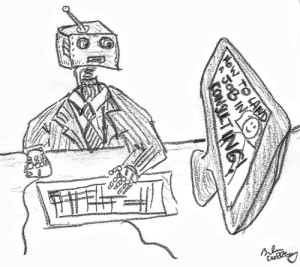One of the tools in the digital consulting toolkit getting the most attention recently is Robotic Process Automation (RPA), which is essentially flexible, user-friendly software designed to automate white collar work by interacting with computer systems in a way that imitates a human worker. Although RPA is more of an evolution than a breakthrough innovation (using software to automate routine computer-based work is nothing new – remember the Excel macro?), it nonetheless promises to have a profound impact on the way we work, putting white collar workers in back office jobs across a wide range of industries at risk of 'economic dislocation'. As Bob Violino[1] of InfoWorld explains, "the technology is designed to reduce or eliminate the need for people to perform high-volume IT support, workflow, remote infrastructure, and back-office processes, such as those found in finance, accounting, supply chain management, customer service, and human resources."
Redwood Software[2], a provider of RPA software, points out that "…the term 'robot' must be taken loosely. Robot is purely a metaphor, in the sense that the software robot or robot agent is imitating or replacing a function such as a business or IT activity that would normally be done by human beings." Although it is a stretch to call this software robots (the diminutive 'bots' may perhaps be a better term, just as phones have apps while personal computers have applications), it is an accurate term in the sense that it promises to unleash a wave of automation on white collar work analogous to what physical robots have done to manufacturing jobs on the factory floor. Indeed, in this sense it may prove to have been an unfortunate choice of words for those companies looking to promote the uptake of this new technology, as it fills people's heads with much more provocative and disturbing images than a reference to software code ever would.


